
下载亿题库APP
联系电话:400-660-1360

下载亿题库APP
联系电话:400-660-1360

请谨慎保管和记忆你的密码,以免泄露和丢失

请谨慎保管和记忆你的密码,以免泄露和丢失
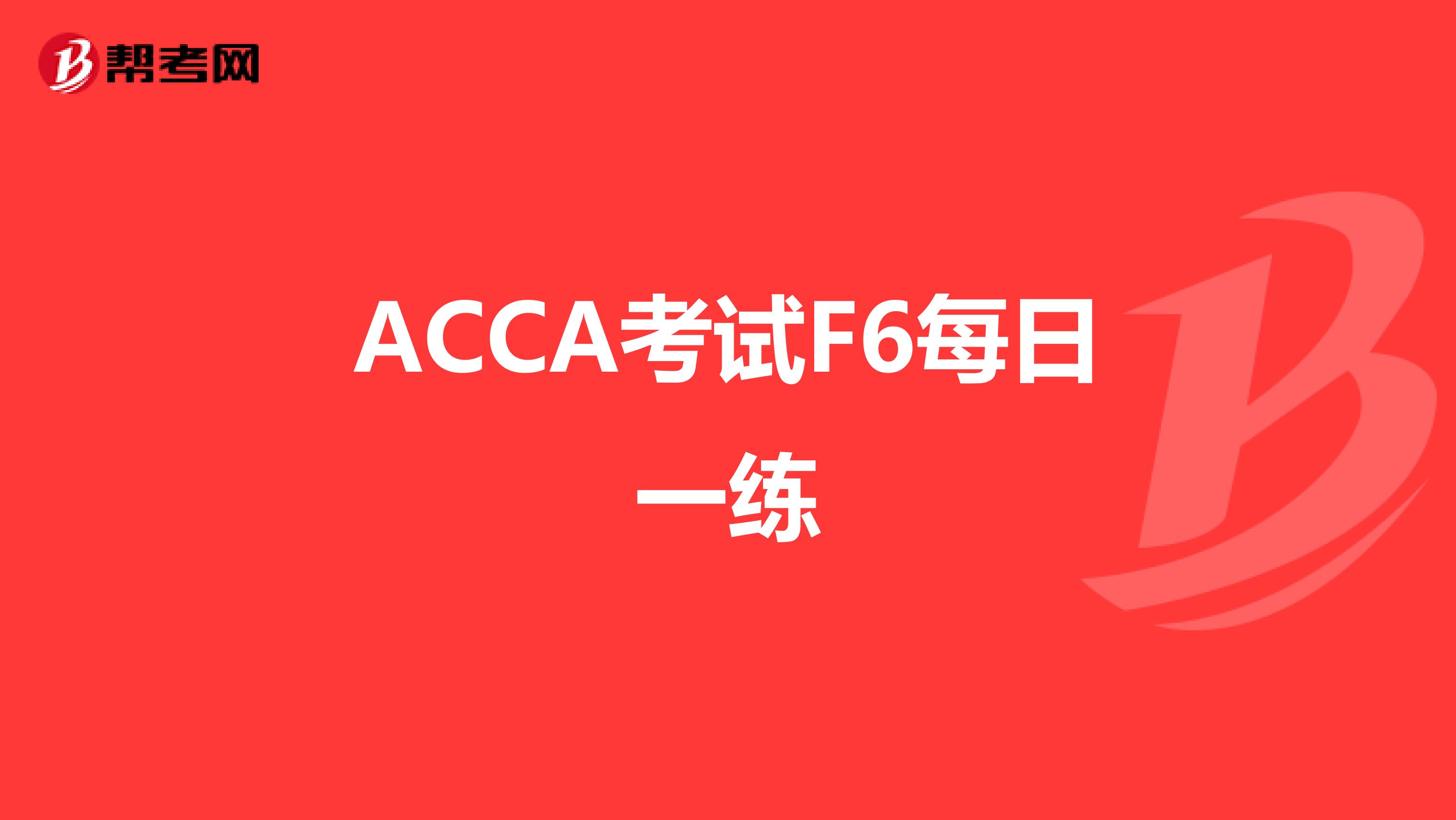
The Company Directors Disqualification Act (CDDA) 1986 was introduced to control individuals who persistently abused the various privileges that accompany incorporation, most particularly the privilege of limited liability. The Act applies to more than just directors and the court may make an order preventing any person (without leave of the court) from being:
(i) a director of a company;
(ii) a liquidator or administrator of a company;
(iii) a receiver or manager of a company‘s property; or
(iv) in any way, whether directly or indirectly, concerned with or taking part in the promotion, formation or management of a company.
The CDDA 1986 identifies three distinct categories of conduct, which may, and in some circumstances must, lead the court to disqualify certain persons from being involved in the management of companies.
(a) General misconduct in connection with companies
This first category involves the following:
(i) A conviction for an indictable offence in connection with the promotion, formation, management or liquidation of a company or with the receivership or management of a company‘s property (s.2 of the CDDA 1986)。 The maximum period for disqualification under s.2 is five years where the order is made by a court of summary jurisdiction, and 15 years in any other case.
(ii) Persistent breaches of companies legislation in relation to provisions which require any return, account or other document to be filed with, or notice of any matter to be given to, the registrar (s.3 of the CDDA 1986)。 Section 3 provides that a person is conclusively proved to be persistently in default where it is shown that, in the five years ending with the date of the application, he has been adjudged guilty of three or more defaults (s.3(2) of the CDDA 1986)。 This is without prejudice to proof of persistent default in any other manner. The maximum period of disqualification under this section is five years.
(iii) Fraud in connection with winding up (s.4 of the CDDA 1986)。 A court may make a disqualification order if, in the course of the winding up of a company, it appears that a person:
(1) has been guilty of an offence for which he is liable under s.993 of the CA 2006, that is, that he has knowingly been a party to the carrying on of the business of the company either with the intention of defrauding the company‘s creditors or any other person or for any other fraudulent purpose; or
(2) has otherwise been guilty, while an officer or liquidator of the company or receiver or manager of the property of the company, of any fraud in relation to the company or of any breach of his duty as such officer, liquidator, receiver or manager (s.4(1)(b) of the CDDA 1986)。
The maximum period of disqualification under this category is 15 years.
(b) Disqualification for unfitness
The second category covers:
(i) disqualification of directors of companies which have become insolvent, who are found by the court to be unfit to be directors (s.6 of the CDDA 1986)。 Under s.6, the minimum period of disqualification is two years, up to a maximum of 15 years;
(ii) disqualification after investigation of a company under Pt XIV of the CA 1985 (it should be noted that this part of the previous Act still sets out the procedures for company investigations) (s.8 of the CDDA 1986)。 Once again, the maximum period of disqualification is 15 years.
Schedule 1 to the CDDA 1986 sets out certain particulars to which the court is to have regard in deciding whether a person‘s conduct as a director makes them unfit to be concerned in the management of a company. In addition, the courts have given indications as to what sort of behaviour will render a person liable to be considered unfit to act as a company director. Thus, in Re Lo-Line Electric Motors Ltd (1988), it was stated that:
‘Ordinary commercial misjudgment is in itself not sufficient to justify disqualification. In the normal case, the conduct complained of must display a lack of commercial probity, although . . . in an extreme case of gross negligence or total incompetence, disqualification could be appropriate.’
(c) Other cases for disqualification
This third category relates to:
(i) participation in fraudulent or wrongful trading under s.213 of the Insolvency Act (IA)1986 (s.10 of the CDDA 1986);
(ii) undischarged bankrupts acting as directors (s.11 of the CDDA 1986); and
(iii) failure to pay under a county court administration order (s.12 of the CDDA 1986)。
For the purposes of most of the CDDA 1986, the court has discretion to make a disqualification order. Where, however, a person has been found to be an unfit director of an insolvent company, the court has a duty to make a disqualification order (s.6 of the CDDA 1986)。 Anyone who acts in contravention of a disqualification order is liable:
(i) to imprisonment for up to two years and/or a fine, on conviction on indictment; or
(ii) to imprisonment for up to six months and/or a fine not exceeding the statutory maximum, on conviction summarily (s.13 of the CDDA 1986)。
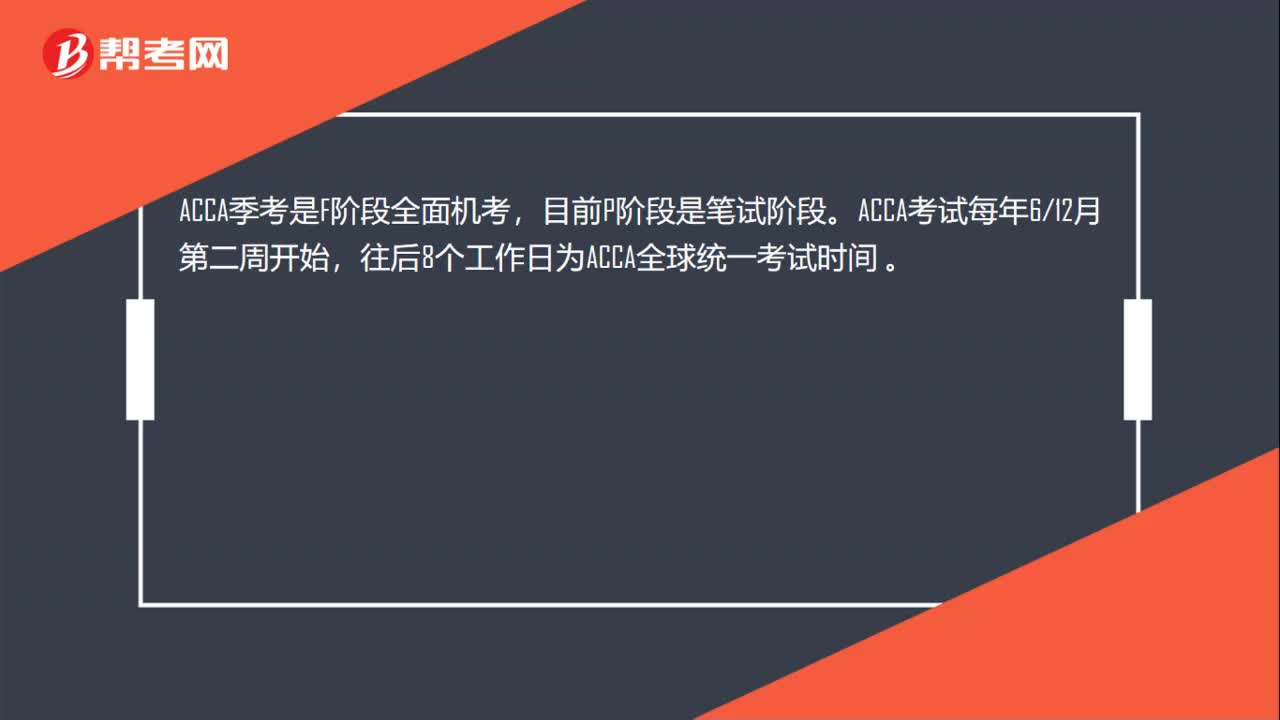 25
25ACCA每年的考试时间是什么时候?:ACCA每年的考试时间是什么时候?ACCA季考是F阶段全面机考,目前P阶段是笔试阶段。ACCA考试每年612月第二周开始,往后8个工作日为ACCA全球统一考试时间。
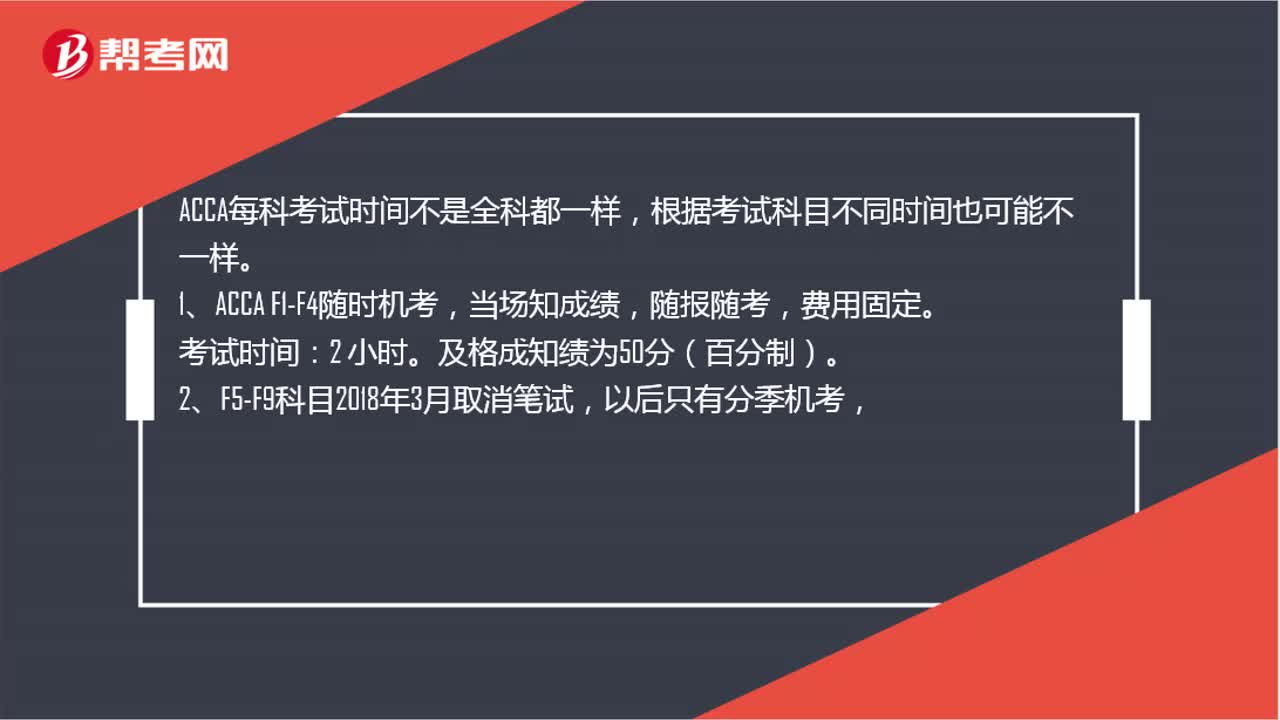 63
63ACCA每科考试时间都一样吗?:ACCA每科考试时间都一样吗?ACCA每科考试时间不是全科都一样,根据考试科目不同时间也可能不一样。1、ACCA F1-F4随时机考,当场知成绩,考试时间:及格成知绩为50分(百分制)。2、F5-F9科目2018年3月取消笔试,以后只有分季机考,每年3、6、9、12月4个考季,机考时间:另有10分钟时间阅读考前须知,3、ACCA专业P阶段所有课程考试时间为3小时,及格成绩为50分(百分制)。
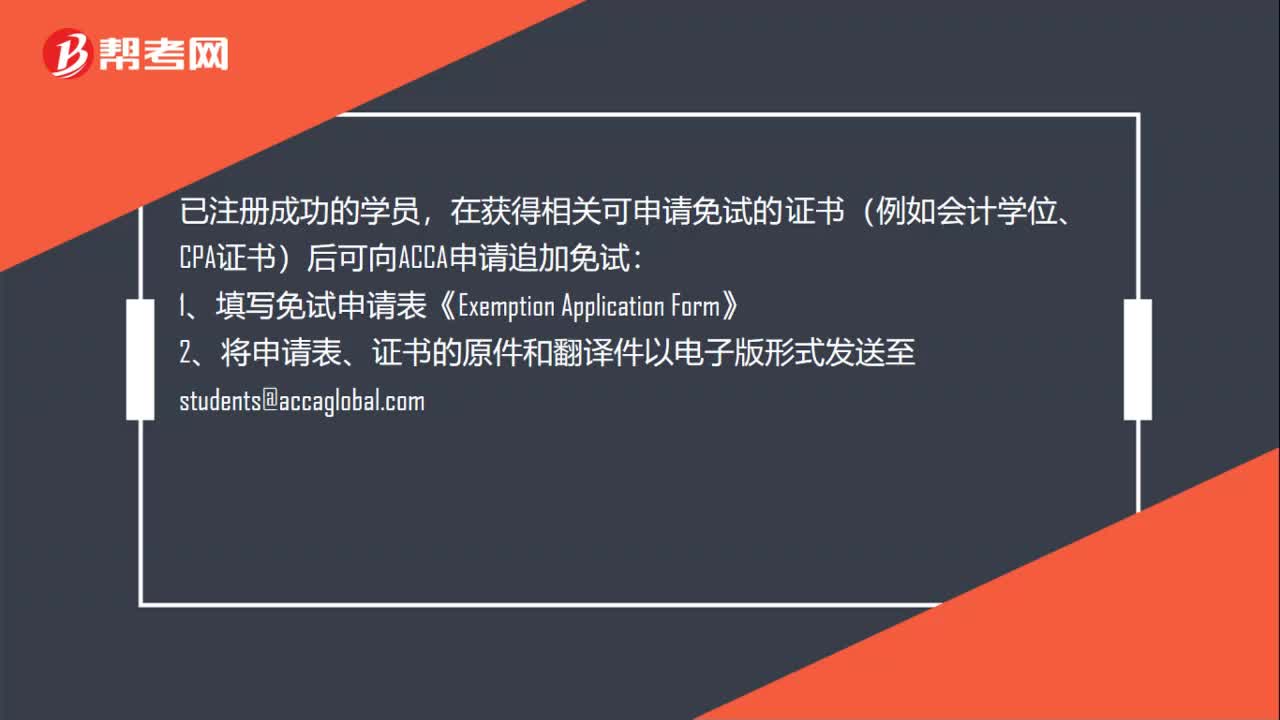 56
56ACCA考试怎么申请免考?:ACCA考试怎么申请免考?已注册成功的学员,在获得相关可申请免试的证书(例如会计学位、CPA证书)后可向ACCA申请追加免试:1、填写免试申请表《Exemption。2、将申请表、证书的原件和翻译件以电子版形式发送至students@accaglobal.com:3、请注意查收邮件或登录MYACCA学员账户查看免试信息,4、确认时间为5个月左右版;(例如,7月15日前提交申请12月考试生效
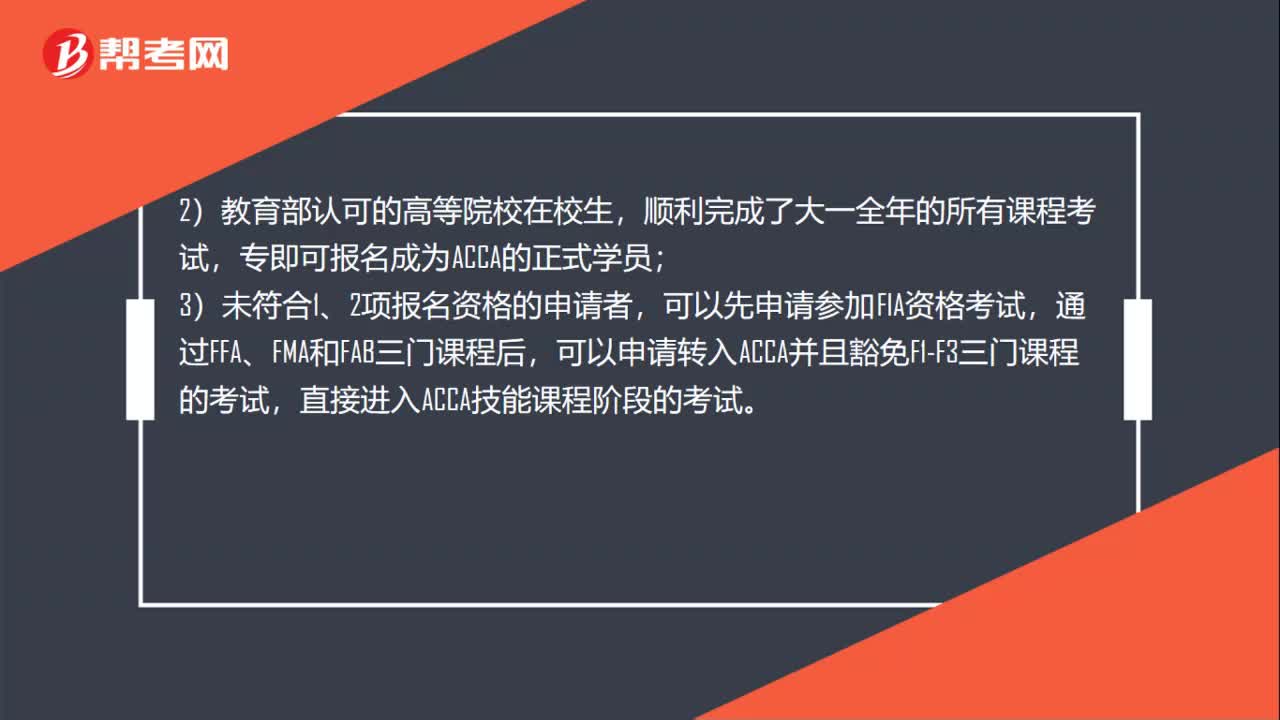 01:03
01:032020-06-04
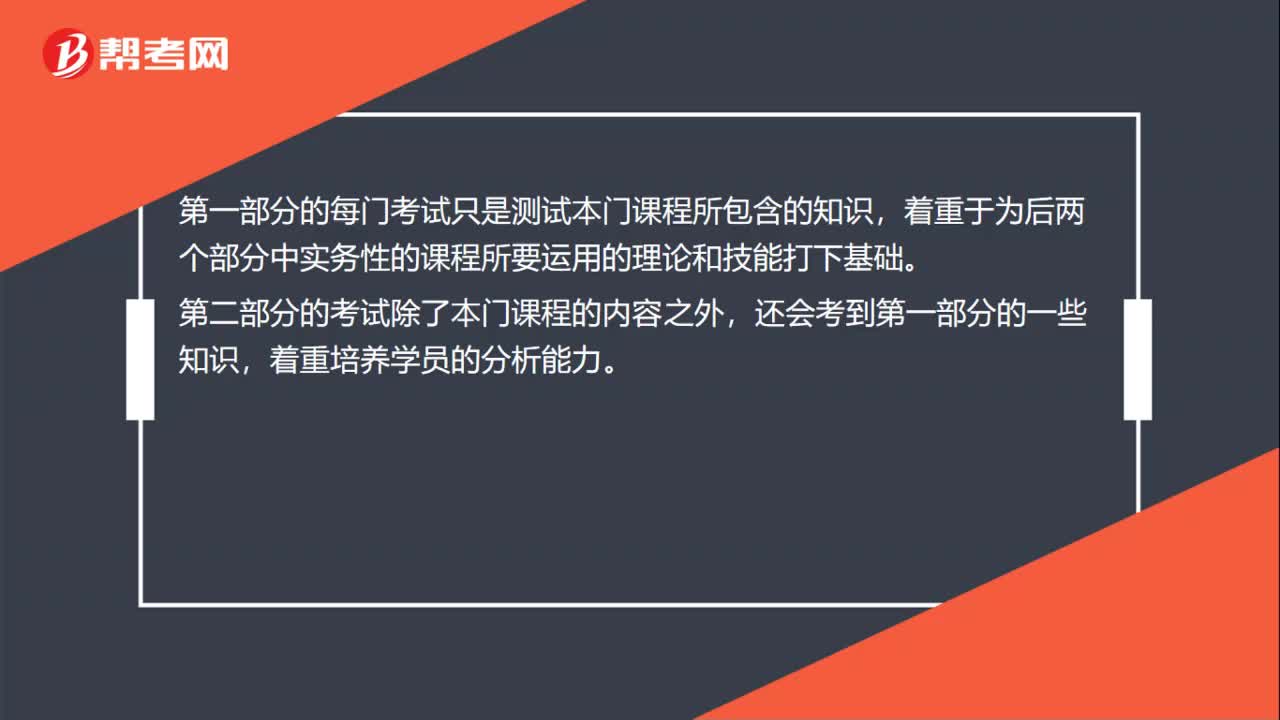 01:20
01:202020-06-04
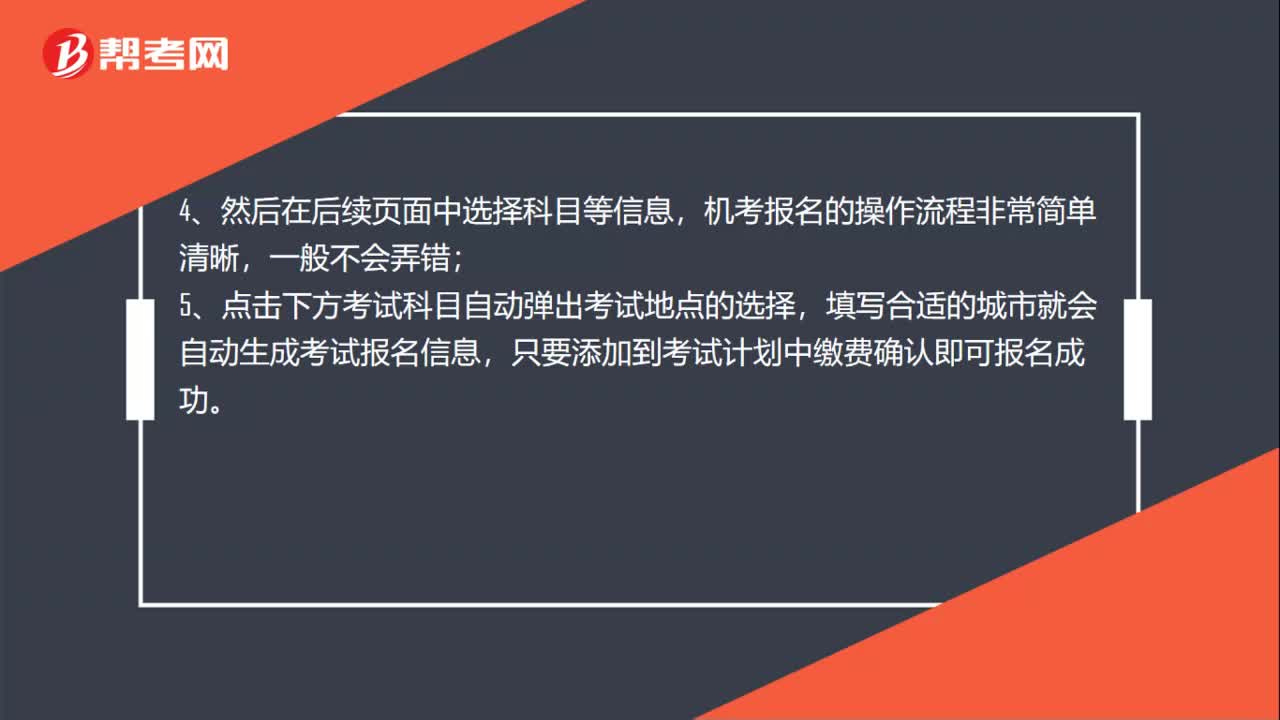 01:21
01:212020-06-04
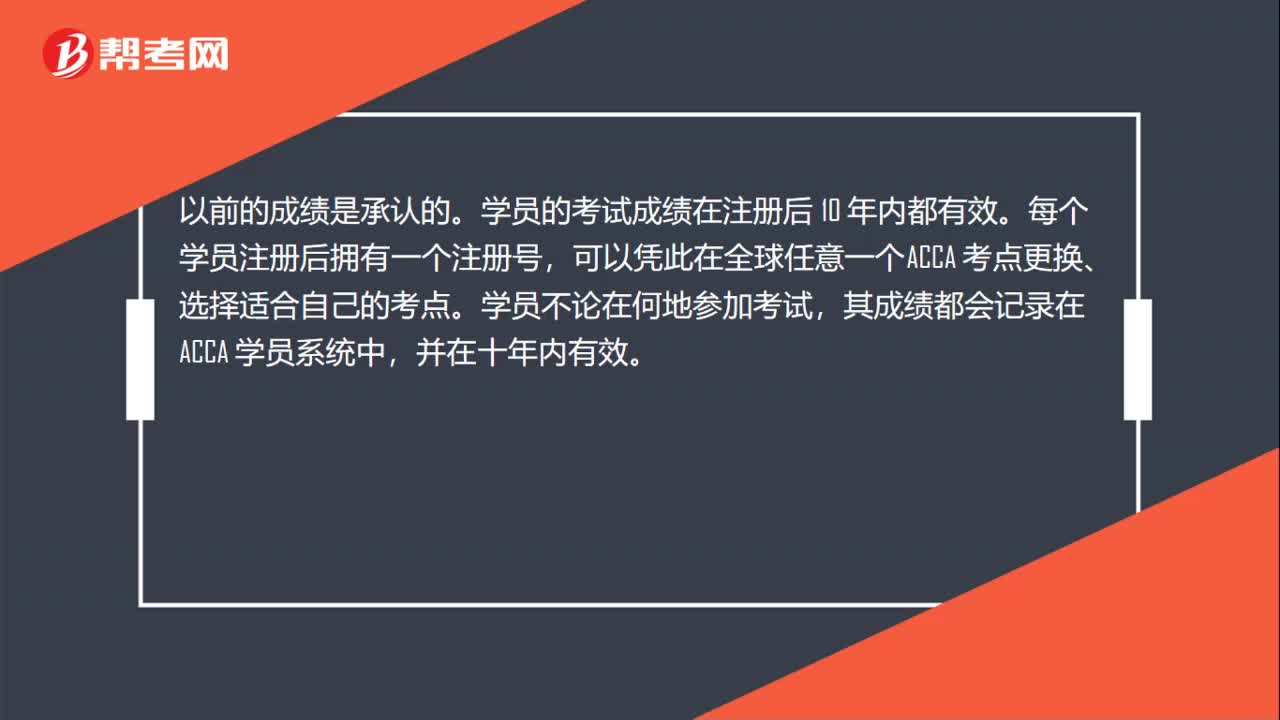 00:34
00:342020-06-04
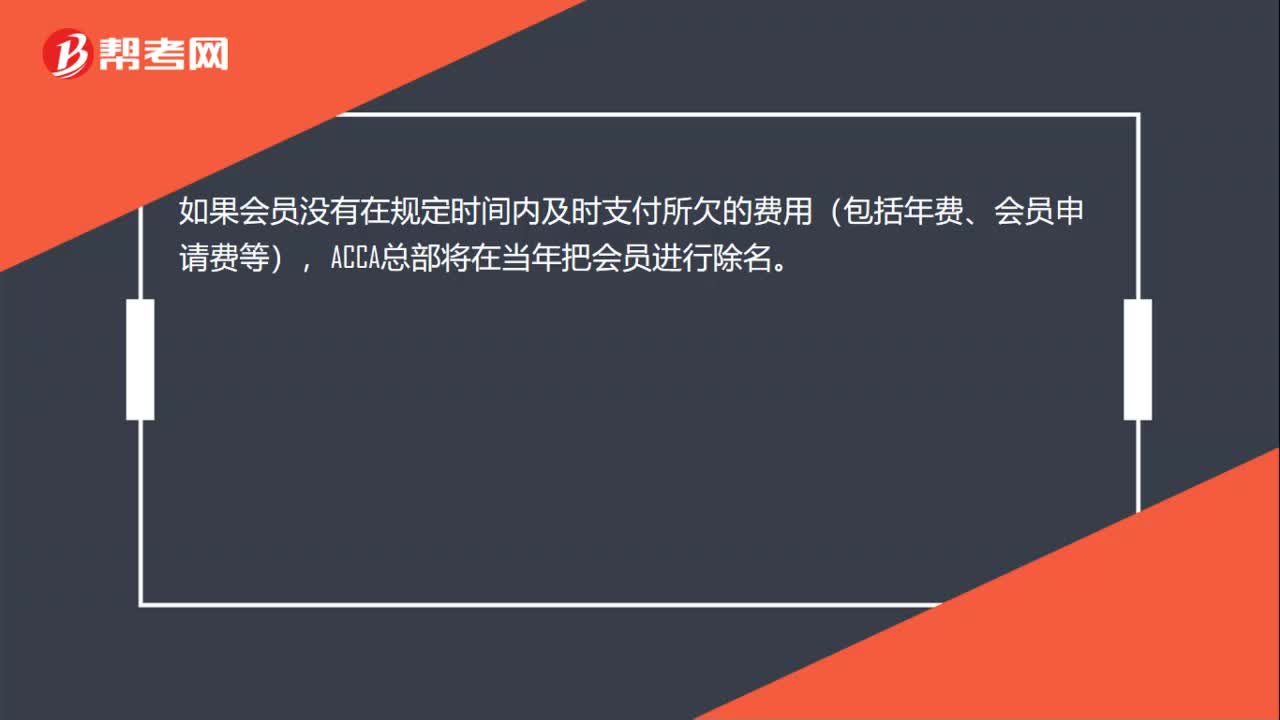 00:19
00:192020-06-04

微信扫码关注公众号
获取更多考试热门资料